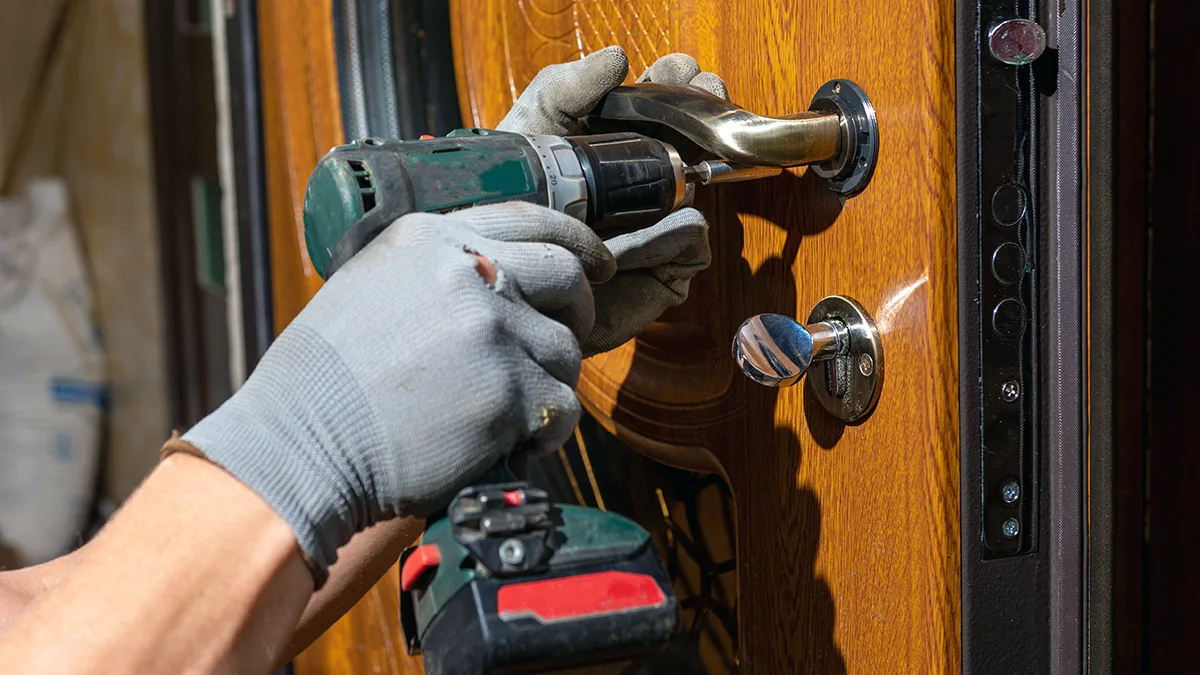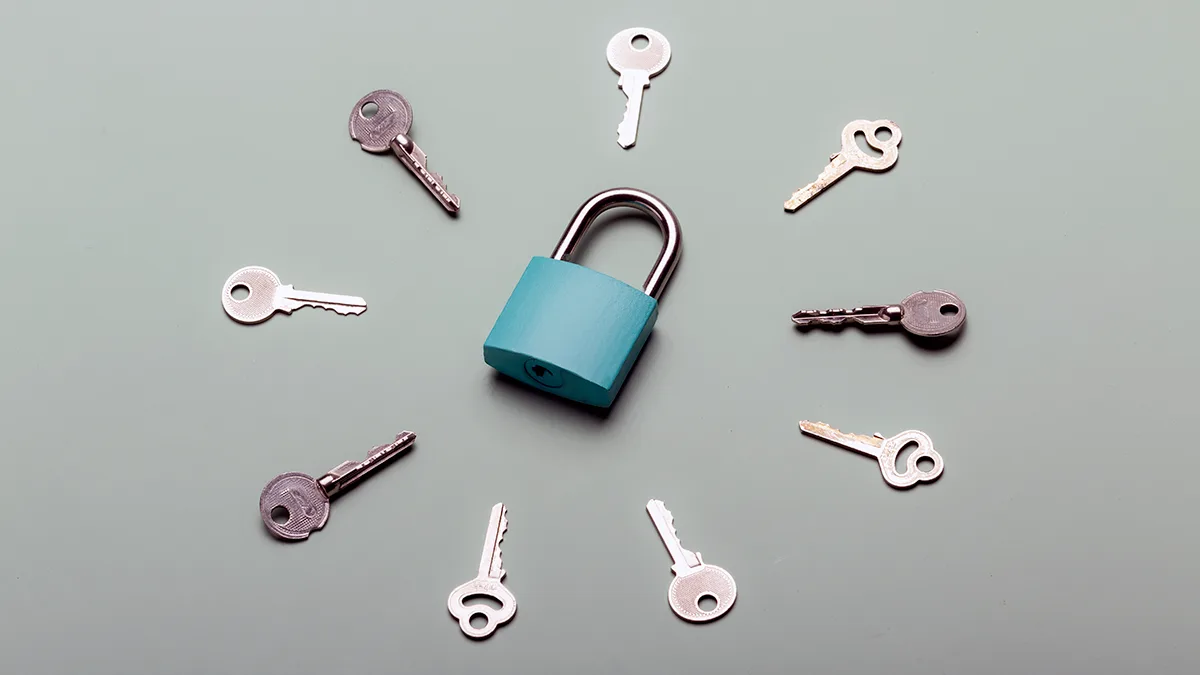Security Checklist for Your London Business Premises. In today's rapidly evolving landscape, ensuring the security of…
Mastering Home Security: A Comprehensive Guide on How to Change Locks
Mastering home security: A comprehensive guide on how to change locks. Ensuring the security of your home is paramount, and one of the most effective ways to protect your property is by mastering the art of lock replacement.
Whether you’re a homeowner, renter, or property manager, knowing how to change locks can provide peace of mind and enhance safety.
Mastering Home Security
This comprehensive guide will walk you through the essentials of DIY lock change, door lock installation, and when to consider professional locksmith services.
With our expert advice, you’ll gain the confidence to tackle lock changes yourself or know precisely when to call in the specialists for more complex or emergency situations.
Introduction to Home Security
Importance of Changing Locks
Changing locks is crucial for maintaining the security of your home.
When you move into a new property, it’s impossible to know how many people might have copies of the existing keys.
Previous tenants, contractors, or even real estate agents could have access.
Moreover, if you’ve lost your keys or they’ve been stolen, replacing the locks ensures that unauthorised individuals can’t gain entry.
Additionally, over time, locks can wear out, making them easier to pick or break.
By regularly updating your locks, you can stay ahead of potential security vulnerabilities.
For landlords and property managers, changing locks between tenants is not just a good practice; it may also be a legal requirement in some areas.
Overall, understanding how to change locks and recognising when it’s necessary can significantly enhance your home’s security and provide much-needed peace of mind.
When to Consider Lock Replacement
There are several scenarios where lock replacement becomes essential.
First and foremost, if you’ve recently moved into a new home, it’s wise to replace all external locks.
This ensures that only you and your household have access.
Similarly, if you’ve lost your keys or suspect they were stolen, immediate lock replacement is necessary to prevent unauthorised entry.
It’s also prudent to change locks after a break-in attempt or if you notice signs of tampering.
Worn-out or outdated locks should be replaced to maintain optimal security.
For landlords, replacing locks between tenants is a must to guarantee the new occupants’ safety.
Additionally, if you’ve experienced a change in domestic circumstances, such as a separation or a roommate moving out, updating your locks is a prudent step.
By staying proactive about lock replacement, you can ensure your home remains a secure and safe haven.
Step-by-Step Guide: How to Change Locks
Tools Needed for DIY Lock Change
Undertaking a DIY lock change requires a few essential tools to ensure the process is smooth and efficient.
First, you’ll need a screwdriver, typically a Phillips or flathead, depending on the lock type.
A tape measure is handy to ensure the replacement lock fits the existing space. It’s also beneficial to have a cordless drill for removing any stubborn screws.
A pair of pliers can assist in gripping and removing parts that are difficult to handle by hand.
If you’re replacing a deadbolt, you might need an Allen wrench set. Additionally, having a flashlight can be useful for illuminating dark or hard-to-see areas.
Lastly, keep the new lockset and all its components, including keys, within easy reach.
By gathering these tools beforehand, you can ensure a more streamlined and less frustrating lock replacement experience.
Detailed Door Lock Installation Process
Installing a new door lock involves several key steps. Begin by removing the old lock using a screwdriver to take out the screws on the interior side.
Once the screws are out, gently pull the lock apart from both sides of the door.
Remove the latch mechanism from the edge of the door by unscrewing it.
Next, position the new latch mechanism into the edge of the door, ensuring it’s aligned correctly.
Secure it with screws. Assemble the new lock by placing the exterior part into the door hole first.
Align it with the latch mechanism. Then, fit the interior part of the lock, ensuring the spindle goes through the latch mechanism.
Screw the interior and exterior parts together tightly. Test the new lock by turning the knob or key to ensure it operates smoothly.
If everything works correctly, you’ve successfully completed the door lock installation.
Professional Locksmith Services
Benefits of Hiring Experts
While DIY lock changes can be fulfilling, there are significant benefits to hiring professional locksmith services.
Experts bring a wealth of knowledge and experience, ensuring the job is done correctly and efficiently.
They can handle complex lock systems that might be challenging for a layperson.
Additionally, professional locksmiths are equipped with specialised tools that facilitate a seamless lock replacement process.
Hiring experts also adds a layer of security. They can assess your home’s overall security and recommend upgrades or additional features, such as advanced locking systems or security cameras.
Moreover, in emergency situations like lockouts or break-ins, a professional locksmith can provide prompt and reliable assistance, restoring your security quickly.
Lastly, professional locksmiths often offer warranties on their work, giving you peace of mind.
By relying on trained specialists, you ensure a higher level of safety and security for your property.
Emergency and Specialised Locksmith Services
Emergency and specialised locksmith services are invaluable in critical situations.
If you find yourself locked out of your home, a professional locksmith can provide swift assistance 24/7, ensuring you regain access without undue delay.
They are trained to handle various lockout scenarios, including those involving advanced or high-security locks.
In addition to emergency lockouts, specialised locksmiths can address unique security needs.
This includes installing high-tech security systems like biometric locks or smart home security solutions.
They can also provide services for safes, offering expertise in safe installation, combination changes, and lock repairs.
Furthermore, locksmiths specialising in automotive locks can assist if you’re locked out of your car or need a key replacement.
Their ability to cater to such diverse needs makes them a reliable resource for both routine and emergency security issues.
By relying on specialised locksmith services, you ensure comprehensive and tailored security solutions for your home and beyond.




Comments (0)